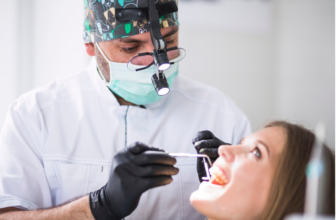Cholesterol Screening Comprehensive Guide
What is Cholesterol Screening?
Cholesterol screening is a blood test used to measure the levels of cholesterol and other lipids (fats) in your bloodstream. It helps assess your risk for heart disease, stroke, and other cardiovascular conditions by determining the levels of total cholesterol, LDL (low-density lipoprotein), HDL (high-density lipoprotein), and triglycerides. These values give a comprehensive view of your heart health and whether lifestyle changes or medication may be needed to manage cholesterol levels.
Types of Cholesterol Screening
- Total Cholesterol Test: Measures the overall cholesterol levels in your blood, including both “good” (HDL) and “bad” (LDL) cholesterol.
- HDL Test: Measures the levels of high-density lipoprotein, known as “good” cholesterol. Higher levels of HDL are better for heart health.
- LDL Test: Measures the low-density lipoprotein, known as “bad” cholesterol, which can lead to plaque buildup in arteries and increase the risk of heart disease.
- Triglycerides Test: Measures a type of fat in the blood. High levels of triglycerides are associated with heart disease and metabolic conditions.
Why Get a Cholesterol Screening?
- Risk of Heart Disease: Cholesterol screenings can help identify risks early before symptoms of heart disease or stroke occur.
- Family History: A family history of high cholesterol or heart disease increases the need for regular screenings.
- Health Monitoring: For individuals with high cholesterol, regular screenings monitor how well lifestyle changes or medications are working.
- High Blood Pressure or Diabetes: Both conditions increase the risk of cholesterol issues and warrant regular screening.
Health Symptoms and Reasons to Get Cholesterol Screening
Cholesterol problems often do not present clear symptoms, but screening is recommended if you experience:
- Unexplained chest pain (angina)
- Family history of heart disease or high cholesterol
- Obesity or significant weight gain
- Diabetes or hypertension (high blood pressure)
- Smoking habits
- Sedentary lifestyle
Even without symptoms, routine screenings are advised for all adults, especially women over the age of 45 or those with risk factors.
Health Professionals Who Perform Cholesterol Screening
- Primary Care Physicians (PCPs): They often perform or order cholesterol screenings during routine health checkups.
- Cardiologists: Specialists in heart health who recommend screenings for patients at risk of cardiovascular disease.
- Endocrinologists: For patients with diabetes or metabolic disorders, these specialists may perform or manage cholesterol testing.
- Nurse Practitioners/Physician Assistants: These professionals can also conduct screenings as part of preventive health care.
Cholesterol Screening Process
- Fasting Preparation: Depending on the test, you may be required to fast (no food or drink except water) for 9–12 hours before the blood test.
- Blood Draw: A small sample of blood is taken from a vein in your arm.
- Lab Analysis: The blood is sent to a lab to measure your cholesterol levels (total cholesterol, HDL, LDL, and triglycerides).
- Results: Your healthcare provider will discuss the results with you, usually within a few days, and provide recommendations based on your cholesterol levels.
How to Prepare for Cholesterol Screening
- Fasting: For accurate results, most cholesterol screenings require you to fast for at least 9–12 hours before the test. Water is generally allowed.
- Medications: Inform your doctor about any medications or supplements you’re taking as some may affect cholesterol levels.
- Exercise and Diet: Avoid heavy exercise, alcohol, or fatty meals the day before your test, as these can temporarily influence cholesterol levels.
How Often Should Cholesterol Screening Be Taken?
- Healthy Adults: It’s recommended to get a cholesterol test every 4-6 years, starting at age 20.
- Women Over 45: Women at higher risk of heart disease should be screened every 1-2 years.
- High-Risk Individuals: For those with heart disease, high blood pressure, or a family history of high cholesterol, annual screening may be necessary.
What’s the Next Step After Cholesterol Screening?
- Normal Results: Continue with regular screenings as advised by your healthcare provider and maintain a healthy lifestyle.
- High Cholesterol: If your cholesterol levels are high, your doctor may recommend lifestyle changes (diet, exercise) or prescribe medication like statins.
- Further Testing: For significantly elevated cholesterol, further cardiovascular testing such as a coronary artery calcium scan or echocardiogram may be recommended.
Risks of Cholesterol Screening
- Minimal Physical Risks: Aside from mild bruising or discomfort from the blood draw, there are no significant risks to the test itself.
- False Results: Eating before a fasting test may give inaccurate results, leading to a misdiagnosis.
- Overtreatment: Some individuals with borderline cholesterol may receive medication they don’t necessarily need; it’s important to balance treatment with lifestyle interventions.
Cholesterol Screening Alternatives
- Non-Fasting Cholesterol Test: In certain cases, a non-fasting blood test may be used, although fasting is usually more accurate for triglyceride levels.
- Home Cholesterol Test Kits: These kits allow you to test your cholesterol at home using a finger-prick blood test. While convenient, they may not be as accurate as lab tests.
- Lipoprotein Particle Testing: Advanced testing that breaks down cholesterol particles in more detail and may provide additional insights for people with heart disease.
Questions About Cholesterol Screening
- What does a cholesterol screening test for? It measures total cholesterol, HDL (good cholesterol), LDL (bad cholesterol), and triglycerides to assess heart health.
- Do I need to fast before a cholesterol test? Most cholesterol tests require fasting for 9-12 hours to ensure accurate results, particularly for triglycerides.
- What is considered a normal cholesterol level? Total cholesterol should be below 200 mg/dL. LDL should be less than 100 mg/dL, and HDL should be 60 mg/dL or higher.
- How often should I get my cholesterol checked? Healthy adults should get their cholesterol checked every 4-6 years, but those with risk factors or high cholesterol should do so more frequently.
- Can I lower cholesterol without medication? Yes, through lifestyle changes such as a healthier diet (low in saturated fat), regular exercise, and quitting smoking.
- What happens if my cholesterol is too high? Your doctor may recommend lifestyle changes, prescribe medication, or both to lower your cholesterol and reduce heart disease risk.
- Can stress affect my cholesterol levels? Chronic stress can negatively impact cholesterol levels, leading to higher LDL (bad cholesterol) and lower HDL (good cholesterol).
- Is high cholesterol hereditary? Yes, genetics play a role in cholesterol levels. Familial hypercholesterolemia is a genetic disorder that leads to high cholesterol.
- What lifestyle changes can lower cholesterol? Eating a heart-healthy diet, exercising regularly, reducing alcohol intake, and quitting smoking can all help lower cholesterol.
- Can cholesterol levels change with age? Yes, as you age, cholesterol levels typically increase, making regular screenings even more important for older adults.
The Hosst.com Platform uses a Digital Twin to help users manage their health by tracking, organising, and optimising healthcare activities. It provides personalised insights and assists with scheduling checkups, tests, and doctor visits.
Key features include:
- Symptom management: Recommends tests and treatments based on user input.
- Health data tracking: Monitors glucose, blood pressure, and more from health devices or manual inputs. Connects with your favorite apps and health monitors.
- Alerts: Warns of abnormal health signs and suggests corrective actions.
- Lifestyle recommendations: Offers diet, medication, and lifestyle tips based on health trends.
- Test result interpretation: Simplifies complex results and explains what they mean for the user.
- Preventive care: Sends reminders for checkups and suggests actions to prevent illness.
- Health scenario simulations: Predicts potential health outcomes based on current data.
- Product and service finder: Helps users find the right healthcare product or service.
- Doctor visit preparation: Gathers vitals, history, insurance, and questions for productive visits, with easy sharing to doctors.
- User-friendly: Ask in your own words, available on tablets, desktops, and mobile devices.
The platform simplifies health management and improves well-being. Free and easy to use and no installation required, get started today.
Disclaimer: The information provided in these articles is for informational purposes only and is not a substitute for professional medical advice, diagnosis, or treatment. Always consult with a qualified healthcare professional before making any decisions about your health or starting any treatments.
Photo credits Freepik.com






